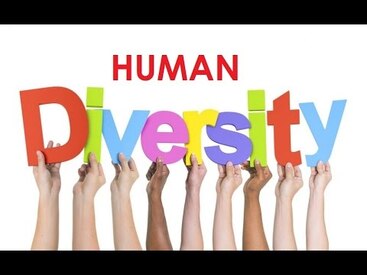Mindful Conversation Toolbox
- 5 books recommended for couples
- Communication & Conflict Cheat Sheet
- Words/Phrases that Signal Empathy vs those that don't
- 10 Steps for Resolving Conflict
- Seven Principles by the Gottmans
- Non Violent Communication
- NVC Flow sheet
- NVC Process (Observation, Feelings, Needs, Request) + NVC Process Worksheet (for practice)
- NVC Feelings & Needs List + NVC Feelings & Needs cards (OR Grock Cards)
- Family Meeting
- Kids Toobox (by DoveTail Learning)

Engaging Difference as Spiritual Practice is a series of facilitated conversations on the best practices of compassionate communication and mindful listening with friends, colleagues, clients, strangers, and family (children & partner/spouse) that leads to peace and reconciliation. (*pdf flyer). This 5 class series (aka Relationship 101) is the foundation for the Couples Class Curriculum at St. Mark's Episcopal Church.
TIME: 11 am - 12 noon
LOCATION: Anderson Chapel @ St. Mark's
(*A personal google account is needed to access google slides of each conversation topic below.)
TIME: 11 am - 12 noon
LOCATION: Anderson Chapel @ St. Mark's
(*A personal google account is needed to access google slides of each conversation topic below.)

9/8. Relationship 101.1 Receiving Feedback for Self Awareness (GOOGLE SLIDES)
We are called to “speak truth in love” and at the same time we are called to be “kind and compassionate” and “forgiving towards each other." How do we practice these in our day to day lives in the act of giving and receiving feedback at work or at home? How do we receive feedback non-defensively and with joy? In this session, we will discuss two models (the Cultural Iceberg and the Johari window) to view feedback as a tool to increase self-awareness and self-growth.
9/15. Relationship 101.2 Nonviolent Communication (GOOGLE SLIDES)
To explore how we might embody Agape/compassion, in this session we will talk about the main components of Empathy, Active Listening & Marshall Rosenberg’s Non-Violent Communication (NVC). What is mindful listening all about? What does “presence” mean when someone (client, co-worker, friend, partner/spouse, or family) is in crisis, or is bringing up an issue with you?
9/22. Relationship 101.3 Mindfulness & Emotional Self Regulation (GOOGLE SLIDES)
We greet each other and “pass the peace.” How can we practice peace in our lives in emotionally volatile situations, when we are in conflict with others? When our emotions are triggered? In this session, we will talk about the Desert Mothers’ spiritual practice of “apatheia” and the Buddhist practice of “mindfulness” & “shenpa” as tools to connect with Christ’s peace within ourselves.
9/29. Relationship 101.4 Conflict Resolution (GOOGLE SLIDES)
St. Theresa of Avila states that “Christ has no body now but yours, no hands no feet on earth but yours; Yours are the eyes through which he looks compassion on this world.” In this session, we will use Prepare-Enrich curriculum’s “10-Step Process for Resolving Conflict”, using tools that embody peace & reconciliation (The Toolbox and the Communication Cheat Sheet).
10/6. Relationship 101.5 Attachment Theory (GOOGLE SLIDES)
Even though we say, “And lead us not into temptation but deliver us from evil,” we are inextricably linked to our ancient reptilian brains (our subcortex) which tends to default to the the war model of communication (fight, flight, or freeze reactions) in moments when we feel vulnerable. In this session, we will explore Attachment Theory by John Bowlby and how awareness of our particular attachment style might help us move towards relationships that value peace and reconciliation.
We are called to “speak truth in love” and at the same time we are called to be “kind and compassionate” and “forgiving towards each other." How do we practice these in our day to day lives in the act of giving and receiving feedback at work or at home? How do we receive feedback non-defensively and with joy? In this session, we will discuss two models (the Cultural Iceberg and the Johari window) to view feedback as a tool to increase self-awareness and self-growth.
9/15. Relationship 101.2 Nonviolent Communication (GOOGLE SLIDES)
To explore how we might embody Agape/compassion, in this session we will talk about the main components of Empathy, Active Listening & Marshall Rosenberg’s Non-Violent Communication (NVC). What is mindful listening all about? What does “presence” mean when someone (client, co-worker, friend, partner/spouse, or family) is in crisis, or is bringing up an issue with you?
9/22. Relationship 101.3 Mindfulness & Emotional Self Regulation (GOOGLE SLIDES)
We greet each other and “pass the peace.” How can we practice peace in our lives in emotionally volatile situations, when we are in conflict with others? When our emotions are triggered? In this session, we will talk about the Desert Mothers’ spiritual practice of “apatheia” and the Buddhist practice of “mindfulness” & “shenpa” as tools to connect with Christ’s peace within ourselves.
9/29. Relationship 101.4 Conflict Resolution (GOOGLE SLIDES)
St. Theresa of Avila states that “Christ has no body now but yours, no hands no feet on earth but yours; Yours are the eyes through which he looks compassion on this world.” In this session, we will use Prepare-Enrich curriculum’s “10-Step Process for Resolving Conflict”, using tools that embody peace & reconciliation (The Toolbox and the Communication Cheat Sheet).
10/6. Relationship 101.5 Attachment Theory (GOOGLE SLIDES)
Even though we say, “And lead us not into temptation but deliver us from evil,” we are inextricably linked to our ancient reptilian brains (our subcortex) which tends to default to the the war model of communication (fight, flight, or freeze reactions) in moments when we feel vulnerable. In this session, we will explore Attachment Theory by John Bowlby and how awareness of our particular attachment style might help us move towards relationships that value peace and reconciliation.
